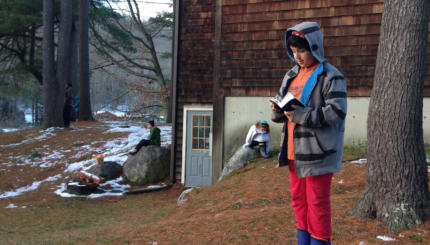It’s something that makes most Jewish people cringe: that moment when, in the midst of some celebrity or political or financial scandal, it’s revealed that there’s a bad guy who happens to be Jewish. And now, quite publicly, this Jewish person has done wrong.
Let’s call them the “Bad News Jews.”
I was pretty young when I first realized that if you’re Jewish, and especially if you’re the only Jewish person someone knows, you will become a go-to-source on All Things Jewish. Not just around holiday times, but also when there’s someone Jewish in the news. Especially when the news is not good, and a fellow known-to-be-Jewish person is getting some bad press.
It was Monica Lewinsky who first taught me this.
I was in high school back when she was in the news. Despite the fact and context of that story, and the whole topic being, y’know, not exactly appropriate conversational material to dive into with a teenager, people would ask me what I thought about that situation. They would ask what I thought about her: Monica Lewinsky, who “sort of looked like me,” as I was told a couple of times. Like maybe, since we were both Jewish, I had some insider info on this hot mess (um, nope!); or I’d be more sympathetic to her plight (um, nope!); or at least I’d be more personally impacted by the story (um… nope… ish?).
That last parenthetical “nope-ish” is where it gets complicated. Because while it doesn’t have anything to do with us, and seems misguided when non-Jewish friends and family ask us specifically about these “Naughty Jews,” well, there is some truth to the fact that we cringe a bit harder when someone Jewish is revealed to be the bad guy in a news story. Even when we have no actual connection to the person, we feel embarrassed. Like it’s making “us” look bad. The same way we take pride in “our” Albert Einsteins, we cringe at “our” Anthony Weiners.
How do we respond to Bad News Jews? When people ask for our opinion, what do we say?
After years of being in this position, my response has become pretty standard. When someone asks me what I think “as a Jewish person,” I try (and sometimes fail) to not roll my eyes, and then lead off by saying that I don’t speak for “the Jews,” I can only speak for myself. A person, who happens to be Jewish, but whose opinions only represent me, and are not representative of all Jewish people. Just like, yes, that schmoe in the news is a person, who happens to be Jewish – but whose actions speak only for him/her, and are not representative of all Jewish people. In a small town, where the Jews are few – like the rural town where I grew up, and the small Southern city where I live now – it somehow seems both more remote and removed, and yet also all the more personal.
It’s a sound basic strategy, but it doesn’t always stop the questions. Or the cringing.
What’s your response when people ask for your “Jewish opinion” on bad news on fellow Jews?


